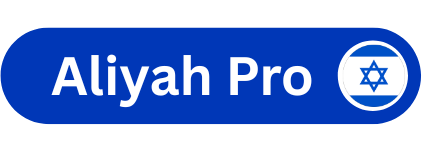Getting Prescriptions in Israel
Basic Requirements:
- Only Israeli-registered doctors can write prescriptions valid in Israel - foreign prescriptions are invalid
- Some over-the-counter medications from other countries require prescriptions in Israel, and vice versa
- Must consult with an Israeli doctor for new prescriptions or refills
How to Get Prescriptions:
- See your family doctor for routine medications
- Visit specialists with referrals for specialized medications
- Private doctors can also write prescriptions (for tourists/visitors)
- Emergency/urgent care can provide temporary prescriptions
Medication Coverage & Costs
Basic Health Basket (All Kupot Cholim):
- Medications included in the Healthcare Basket are provided to anyone covered by national insurance
- Prescribed medications are supported by government subsidies, but you may need to make a co-payment. A prescribed antibiotic costs around $6
- Many commonly prescribed medications cost 13 NIS only, or a bit over 3 US dollars
Supplementary Insurance Benefits:
- Supplemental plans offer a wider selection of medications beyond those included in the Health Basket
- 85% of Israelis have supplemental health insurance plans that cover medications not included in the basic benefit package
- Cost varies by age: ranging from just 10 NIS per month for young children, and up to 200 NIS per month for those over 80
Finding Medication Coverage:
You can check medication coverage through:
- Ministry of Health database - searchable database of all registered drugs
- Each kupat cholim’s supplemental plan lists (links available in Hebrew)
- Shor Tabachnik pharmacy price list showing full non-subsidized prices
Pharmacy System
Pharmacy Types:
- Kupat cholim pharmacies - work exclusively with specific health funds
- Independent pharmacies - including SuperPharm chain with close to 20 outlets in Tel Aviv alone, accept all valid Israeli prescriptions
- Hospital pharmacies - for inpatient care
Prescription Limitations:
- Most prescription medication cannot be obtained in increments of more than 1 month’s supply - you will need to make monthly trips to the pharmacy
- Unlike the US where you can get a 3-month prescription filled, in Israel few medications can be filled with more than a 30-day supply
Pharmacy Availability:
- Medications are only available at pharmacies - unlike the US where you can get pharmaceuticals at supermarkets and gas stations
- Many kupat cholim clinics have on-site pharmacies for convenience
Bringing Medications from Abroad
Customs Allowances:
- Travelers are allowed medicines for personal use, usually only a 30-day supply
- Traveling with prescription drugs in bottles that have the drug name, doctors name and your name on it is not generally an issue
- Must be in original prescription bottles with proper labeling
Requirements for Travel:
- Keep all medications in their original packaging together with the prescription
- Ensure that the name on the prescription matches the name on your passport
- If you’re carrying narcotics, get a letter from your physician explaining the medications prescribed and why you need them
Important Restrictions:
- Cannabis based products or medication cannot be imported, for any reason
- Controlled substances may require special documentation
- Foreign prescriptions cannot be filled at Israeli pharmacies
Recommendations for New Immigrants:
- Bring a three-month supply of your medication or whatever your present health plan allots for
- Bring a medical summary to present to your new physician in Israel
- Set yourself up with a local Family Physician soon after arriving in Israel
Medication Costs Comparison
Israel vs. Other Countries:
- Prescription medications are cheaper in Israel than they are in the US, because of government subsidies
- Most OTC medications cost much more than in other countries
- The price at the pharmacy for kupah subsidized drugs may be substantially lower than full price
Cost Examples:
- Basic antibiotic: ~$6 with coverage
- Common prescriptions: ~13 NIS ($3-4) with coverage
- Private prescription costs vary significantly
Special Considerations
Medication Availability:
- Some medications you currently take might have a different name, and in some cases, the medication may not be available at all in Israel
- Israeli legislation allows for importation of non-registered drugs from authorized countries under special circumstances
- The Ministry of Health maintains a database of all registered medications
Language Issues:
- Prescriptions are typically written in Hebrew
- Private English-speaking doctors write prescriptions in English that can be dispensed from all private pharmacies
- Some pharmacy staff may speak English, especially in tourist areas
Emergency Situations:
- Hospital emergency rooms can provide urgent prescriptions
- Urgent care centers can write prescriptions for immediate needs
- Exercise caution when purchasing medication in Israel - counterfeit medication is common and may prove to be ineffective
Practical Tips
For Visitors/Tourists:
- Use private doctors for prescription needs
- Ensure adequate travel insurance covers medications
- Medication purchased abroad must meet FDA requirements to be legally brought back to the United States
For New Residents:
- Register with a family doctor immediately upon arrival
- Join supplementary insurance within 90 days to avoid waiting periods
- Research medication availability before moving
- Consider professional services like EMA Care for medication transition assistance
Documentation to Keep:
- Original prescription bottles
- Medical summaries from previous doctors
- List of current medications with generic names
- Doctor’s letter explaining medical conditions
Bottom Line: Israel has a well-regulated prescription system with good coverage through kupat cholim, but foreign prescriptions are invalid. Plan ahead for medication needs, bring adequate supplies when moving, and establish care with local doctors quickly. Supplementary insurance significantly expands medication coverage options.

